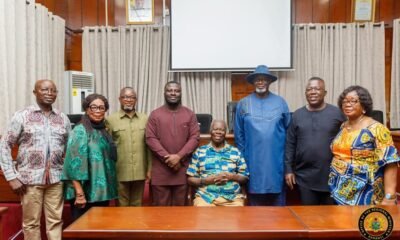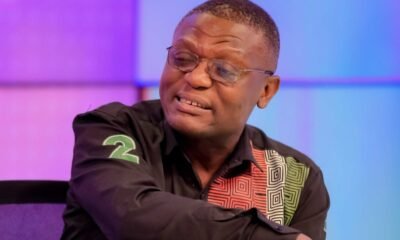Profile
Venoms that kill your motivation and their antidotes

It’s hard to keep motivation alive sometimes
Here’s a short story that may or may not sound familiar. One day an enticing and fresh idea knocks on your door, you welcome it into your life and soon it blossoms into an exciting new project you can’t wait to start working on.
So you get down to business! All hands on deck. You feel good, motivated, unstoppable and inspired. Everything goes well…at least for a while.
Somewhere along the way, things start to go south. The motivation that fuelled you at the beginning is gone and without it your project can’t survive much longer.
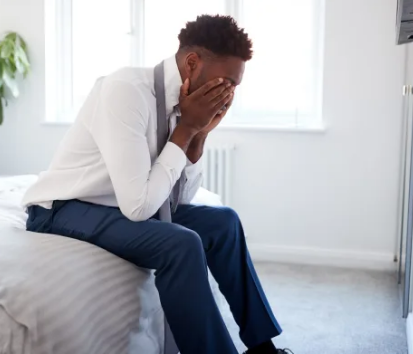
After this, a wave of frustration invades you. You don’t know what went wrong and honestly you are too disheartened to perform an autopsy on the ‘dead project.’
After grieving for a while, you move on to the next one, excited and motivated like before. But soon afterwards the next project dies too! And before you know it, you have a pile of dead projects buried in your backyard.
At this point you can’t help but wonder why it is so hard to keep motivation alive? Most of the time the cause of death was one (or a concoction) of these venoms listed below.
SELF-COMPARISON
Nothing drains your energy more than comparing yourself with others. Seriously, it’s an incredibly exhausting task. That’s why it’s no surprise that at the end of the day, you have no energy left to invest in your projects and personal goals.
Comparison is a natural process the human brain has been doing for ages and it’s a key feature of our species.
If you want to achieve the objectives you have set for yourself, the first thing you have to learn is how to be energy-efficient and reserve your precious and limited mental energy for the things that really matter and that will bring you something useful or productive in the long run.
For example: comparing a stunning shot of an Instagram model basking in the sun on a tropical island against ourselves on a Sunday morning is not only unfair and irrational, but also unfruitful, pointless and incredibly toxic.
And it’s called self-destructive comparison. That’s the type you don’t want to engage in.
On the contrary, comparing your habits and lifestyle with a well-planned nutrition and fitness programme, actively seeking and identifying our weak spots and be willing to improve them in order to live a healthier life, is meaningful and productive and it’s self-evaluation or constructive comparison. And that’s the type you’ll want to invest your precious and limited energy in.
In short, self-destructive comparison weakens our motivation while constructive comparison nurtures it.
STAGNATION
Think of motivation as a house plant. You need to constantly water it and nurture the soil for it to grow healthy. It will wither slowly and eventually die if you don’t dedicate time to take proper care of it.
“So what can I do to stimulate my motivation every day?” you may ask. The answer is pretty straightforward and it’s something you probably have heard about before: vision boards.
Remember that humans are visual creatures, so it’s no surprise that sometimes we need to see the things we want to achieve in order to keep moving forward. And what vision boards do best is helping you visualise your goals.
So what about creating one? They are incredibly simple to make on your electronic devices or you can even go to greater lengths, print it and hang it on your wall so you can see it everyday.
IMPATIENCE
We have to come to terms with the fact that good and worthwhile things take time and it’s imperative that we learn to cultivate the increasingly rare virtue of patience. Sometimes, especially when we are just getting started on a new project (which could be referred to as the “honeymoon period” of our projects).
While being high-spirited is important, things get dangerous when we start setting unrealistic goals.
Feeling constantly disappointed for not being able to reach the unreasonable milestones we set for ourselves, creates a sense of defeat that gradually weakens our motivation and causes us to get frustrated, disheartened and end up abandoning our projects altogether.
So what can you do to protect your motivation from the devastating effects of impatience? Start by allowing yourself to work slowly but surely by dividing tasks into small chunks and while you are at it, remember to watch out for the goals you set. Setting unrealistic goals can end your whole career before you even start.
Make it a habit to acknowledge and praise your progress, no matter how small the victory. Because seeing how much you have accomplished can give you the reassurance you need to know you are doing things right, and this knowledge helps keep impatience at bay.
PERFECTIONISM
Perfectionism slows you down and puts an unnecessary amount of pressure on your shoulders. It’s extremely time-consuming. Perfectionism affects your motivation the same way impatience does.
So, instead of sweating every little detail, worrying about every tiny thing and overthinking every small aspect of your project, try to focus on what’s really important.
Focus on the things that will really pay off and make a difference in the long run.
Being detail-oriented is a good thing, but don’t overdo it. When it comes to achieving your goals, the most important thing is to be consistent, not perfect.
Perfection is an illusion we can spend all our lives chasing after and never achieve. Instead, strive to find satisfaction in knowing that you are doing your best, learning and improving every day.
Source : Pickthebrian
Profile
Prisca Abah: Ghana’s modelling powerhouse

Ghanaian model, philanthropist and advocate, Prisca Abah, who is known for her contributions to the fashion industry, is strutting her stuff on higher levels.
She was recently selected as one of the models for the Big8 Girls Project, an initiative by Clinton Samuel to celebrate influential African models.
The project consisted of three episodes: the Bio Shoot which highlighted Abah’s professionalism through a corporate-themed photoshoot; Afrodeity which focused on showcasing her confidence and artistry, celebrating the African divine feminine and royalty which presented Abah as a symbol of African cultural pride, embodying strength and elegance.

The Big8 concept, produced by Clinton Samuel, intentionally highlights and celebrates the strongest and most influential models on the African continent, congratulating their steadfastness and contributions to the African fashion industry, even as they grind and win in other aspects of life.
The Big8 sets hierarchy and high standards in the African fashion and modelling industry, crowning eight of them with the ‘Top Model’ status as the leading female models in Ghana at the moment.
“Working with these fiery women will surely ignite more creative minds and stir the pot of positive competition,” said Clinton.
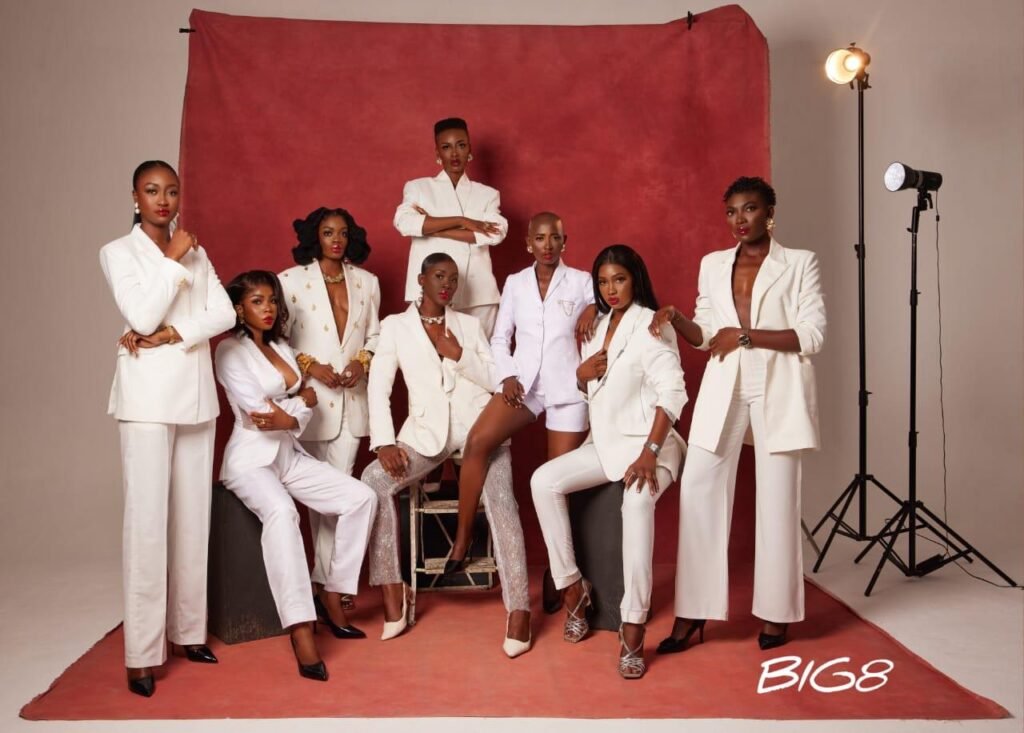
Abah’s early life and career
Prisca Abah began her modelling career in 2013, achieving her first notable milestone in 2014 with an editorial shoot for 5-Star International Modelling Agency. In 2015, she made her runway debut at the Ghana Fashion Awards.
From 2016 to 2018, Abah participated in major African fashion events such as Glitz Africa Fashion Week, Mercedes-Benz Fashion Week in Johannesburg, and Rhythms on the Runway.
During this period, she received accolades, including the “Best Female Model of the Year” and spoke as a UN Ambassador for Sustainable Development Goal 12 at the Sustainable Rice Platform Conference.
International recognition and pageantry
In 2022, Abah expanded her reach by entering the pageantry world. She placed as the first runner- up at the Beauty of Africa International Pageant and represented Ghana at the Miss Globe World Finals, where she earned the title of Miss Globe Africa 2022.

Philanthropy
Abah founded the Palins Foundation, a non-profit organisation, aimed at empowering women and youth through initiatives in education, skills training, and personal development.
Awards and collaborations
In 2023, Abah received the Best Model of the Year award at the Time Ghana Arts and Entertainment Awards. She has collaborated with leading designers such as Charlotte Prive and Ejiro Amos Tafiri, further solidifying her influence in African fashion.
Legacy
Prisca Abah is recognised not only for her contributions to the fashion industry but also for her philanthropic efforts. Her journey serves as an inspiration to young Africans, encouraging them to pursue their dreams while giving back to society.
By Edem Mensah Tsortorme
Profile
Juventus Duorinaah, Ghana’s first deaf Lawyer
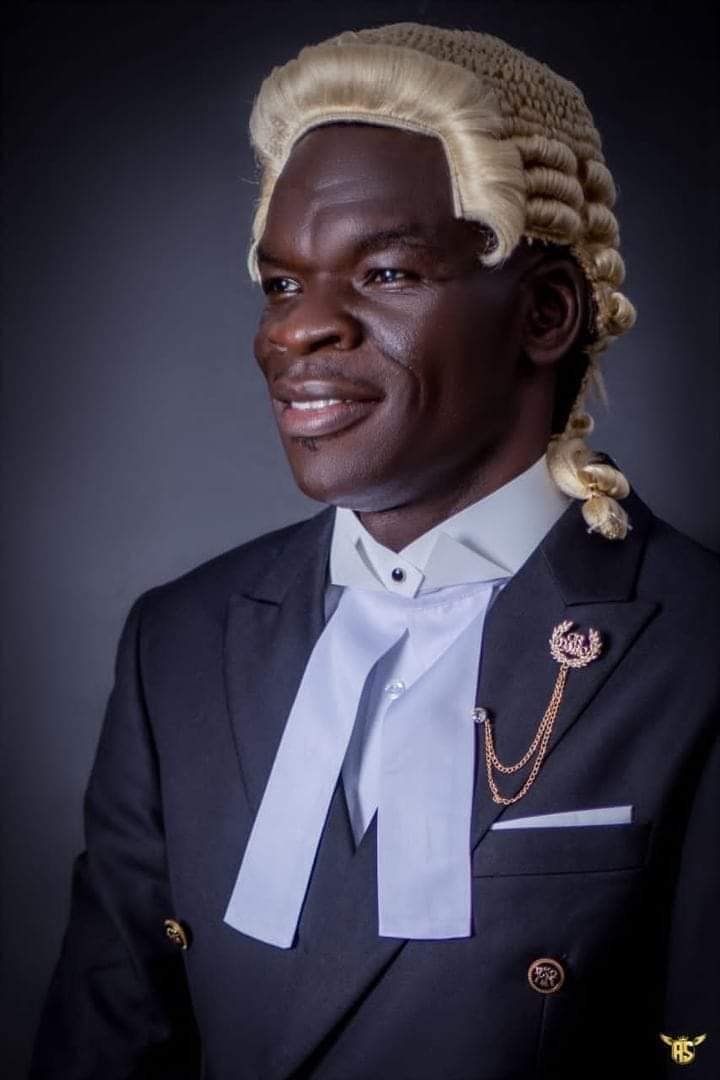
In a landmark moment for Ghana’s legal landscape, Juventus Duorinaah Esq., has etched his name in history as the country’s first lawyer with a hearing impairment.
His journey from a humble background to breaking barriers in the legal profession serves as a powerful inspiration for countless individuals in the disability community, proving that determination and resilience can defy societal expectations and create pathways to success.
For Juventus, the recognition as Ghana’s first deaf lawyer feels surreal.
“It feels like a dream,” he reflects, acknowledging the stereotypes surrounding deafness and the humble background from which he hails.
Juventus’ passion for law sparked in 2008 while seeking admission to the University of Ghana (UG). Although he initially faced challenges due to the nature of the application process, the help of his older brother and his determined spirit led him to pursue a Bachelor of Arts degree in 2012, followed by a Master of Laws at Cardiff University in 2014.
His passion for the study of law became highly intense when he had to study alongside qualified lawyers from several jurisdictions, even though he did not have a legal background. Here, he faced the unique challenge of studying without sign language interpreters, relying instead on a palantypist to transcribe lectures.
Juventus’ role model was his professor and mentor, Professor Luke Clement, who profoundly inspired him in shaping his understanding of law and human rights.
He remembers Prof. Thomas Stephens from the University of Ghana School Of Law, who inspired him with his way of dressing, in-depth knowledge of the law and engagement with students.
He recounts the enormous challenges he encountered during the COVID-19 pandemic in 2020, when lectures moved online, and Dr Stephen’s tremendous support to ensure things moved quickly and smoothly for him.
“I also had the chance to have a few classes with the Dean himself, Prof. Raymond Atuguba. He taught the course such that some of us never felt scared as other lecturers made the course,’ he recalled.
Juventu’s academic journey was fraught with challenges, particularly in communication.
The year 2007 was the last time he studied with deaf peers. He was often the only deaf person in his classes throughout the following years of his education, which made interaction with peers difficult.
Despite these hurdles, he remained high-spirited, studying late into the night and seeking help from kind classmates when necessary.
Reflecting on his academic experience at UG, he connected his affection for the university to his older brother, who is also an alumnus. He felt inspired to be a student of the premier university, saying he would choose the University of Ghana any time, any day, if given the chance to further his studies or work.
The University Of Ghana School Of Law, along with its Dean, Professor Raymond Atuguba, the Director of Legal Education of the Ghana School of Law, Yaw Bramiah Oppong, and his capable team, including the Registrar and Deputy Registrar of the Ghana School of Law and the Office for Students with Special Needs (UG), made significant contributions to his journey.
Prof. Atuguba acknowledged Juventus’ achievement as evidence of the university’s commitment to Diversity, Equity and Inclusion.
Commenting on how the school accommodated his special needs, Prof. Atugugba explained that ‘In the case of Juventus, we worked closely with him to understand and address his special needs, ensuring he had access to the teaching and learning resources in the appropriate formats that would support his academic journey.
Professor Atuguba noted that Juventus’s journey is just beginning, and the future holds promise for him and the many lives he aims to touch along the way.
Juventus’s close friend, Ida Esi McOwusu Esq., described her first encounter with Juventus as ‘intriguing.’ “My first meeting with Juventus was in class, where he sat right in front of me in first year,” Ida reveals. She was intrigued and wanted to find out more about him, especially how Juventus navigated his way to this level. “I got closer and we became friends from there,” she remarked.
Mr Francis Kweku Essel, Juventus’ interpreter, shed light on the primary challenges he faced in carrying out his job, particularly the complex nature of legal terminology and concepts. This validates Ida’s comment on the interpreters’ lack of legal background as a challenge Lawyer Duorinaah encountred.
Juventus dreams of becoming a judge and aims to enhance justice delivery while serving as a role model for young people with disabilities.
He is currently mentoring a group of young deaf students interested in pursuing law, hoping to pave the way for future generations. What’s next for Lawyer Juventus? His next step is to complete his pupilage, after which he can decide further his legal career.


